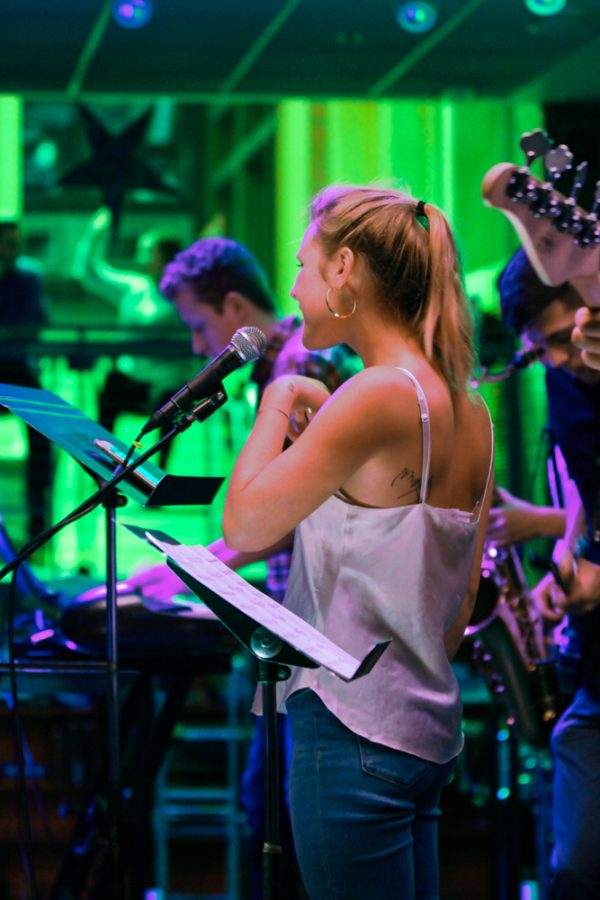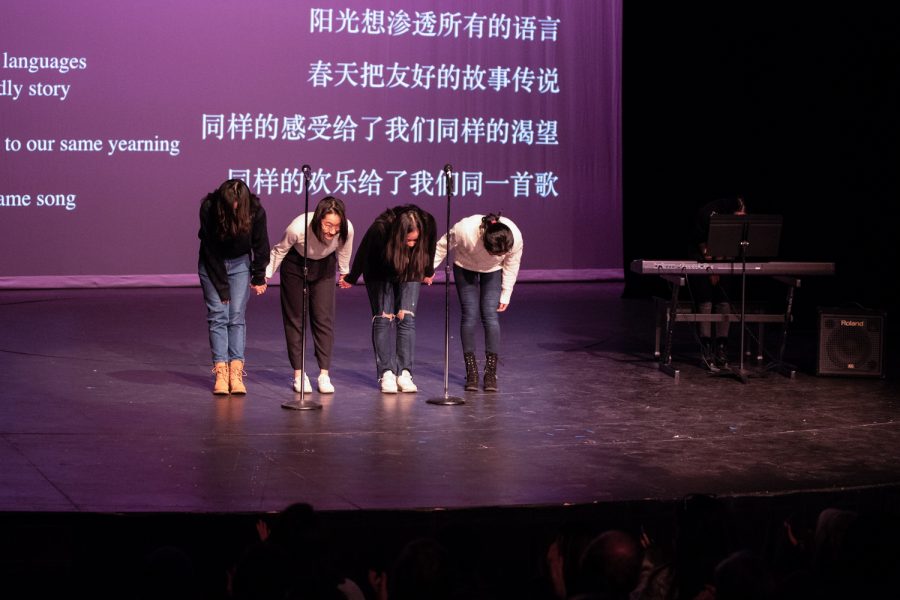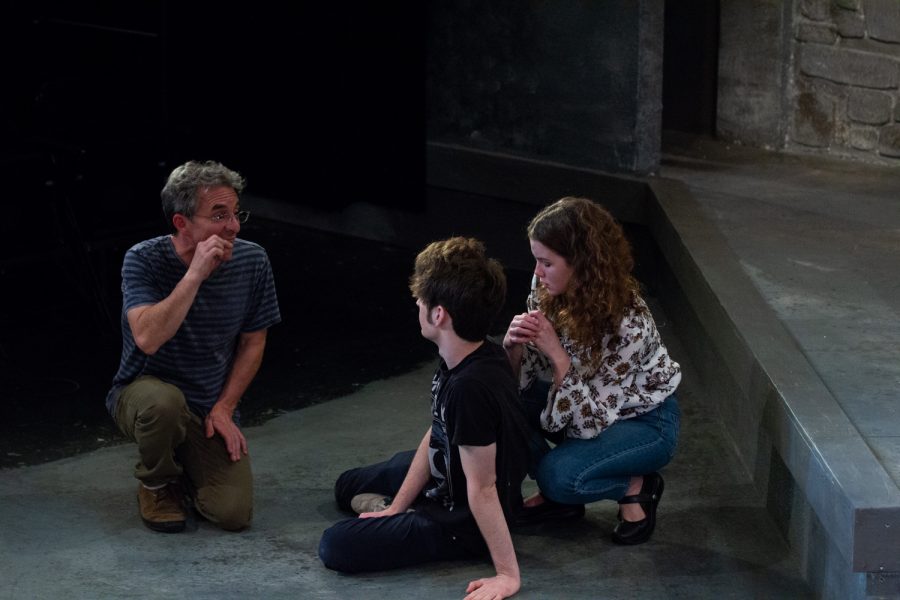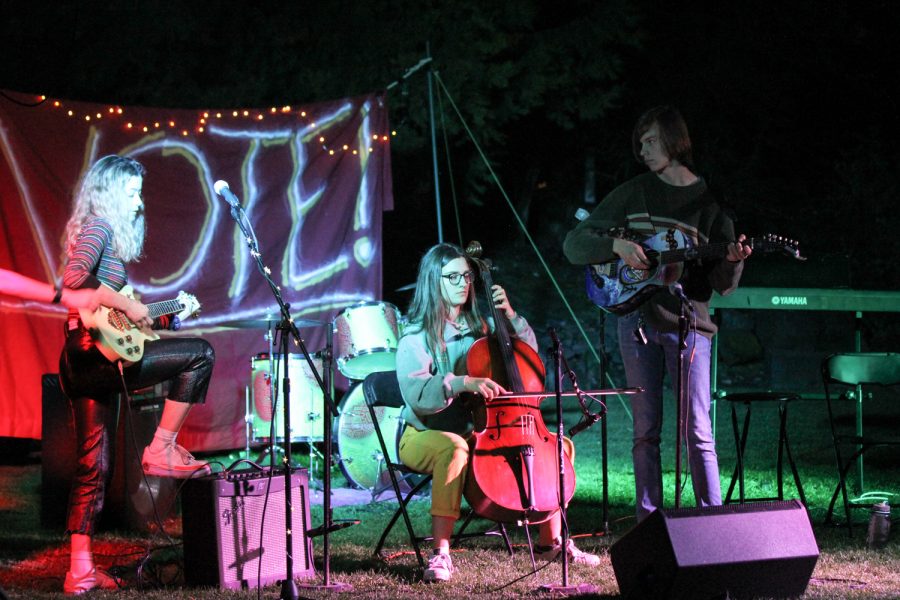This weekend’s dance performance, Minidoka, will bring a dark part of American history back into the Whitman consciousness. The performance, based on poems by Lawrence Matsuda, tells a story of the Japanese internment camps during World War II.
Choreographer and Whitman Adjunct Professor of Dance Vicki Lloid first encountered Matsuda’s work through her friendship with writer Tess Gallagher. Lloid was initially hesitant to base this semester’s performance around such a serious topic.
“The poems are beautiful but they’re very sad,” said Lloid. “Then there was just this one poem where he talks about his mother, in the camp, being pregnant in the summer time and wearing an orange dress, and dancing to the radio music; and that [moment] was just kind of, ‘Okay, I think I can do this now.'”
Besides the collaboration with the poet, Minidoka involves a high level of collaboration between choreographer and dancer. Much of the first movement was either created through improvisation or will be improvised in the show.

“Some of the improvs have been very powerful … because new situations develop every time we do it,” said senior dancer Laura van der Veer.
Sophomore Dave McGaughey also found the improvisation powerful under Lloid’s guidance.
“Vicky’s an incredible choreographer; incredibly abstract, post-post-modern, all these things, but she really is amazing,” said McGaughey. “We would spend, for example, a full rehearsal thinking about how to [work abstractly with the concept of] making somebody the other.”
“We’ll create or make someone into the other so we can treat them badly…. Everybody’s capable of that,” said Lloid. “I think it’s hard for [the students], though, to do it, because they’re working with their friends.”
The idea of the other might be difficult for Whitman students to work with in the abstract, but all the collaborators had their own perspective on the history of the internment camps. Van der Veer drew on her knowledge from classes and from the Japanese historical society in Portland, Ore. McGaughey visited one of the internment camps.
“On Semester in the West we went to Manzanar [internment camp in California]; and I’m really interested in Japanese internment,” said McGaughey. “It’s something that really skips the history books way too much, Japanese interment; it’s a terrible time in history.”
Lloid had a personal connection as well.
“My father had friends who were Japanese here in Walla Walla who were taken off to internment camps,” said Lloid.

Despite the seriousness of the topic, the performance is not all dark. It also includes a big swing dance number, inspired by descriptions of the dances held by the Japanese internees. The performers also pointed to the show’s ability to provoke conversation and its wide range of art forms as reasons the Whitman community might enjoy it.
“It’s a very beautiful, powerful, emotional show,” said van der Veer. “I think it’s one of Vicky’s best shows that she’s done so far, so I am very excited that this is my last. It’s a great way to end my experience with Whitman dance theatre.”
The performances will be Friday and Saturday at 8 p.m. in Cordiner Hall.










